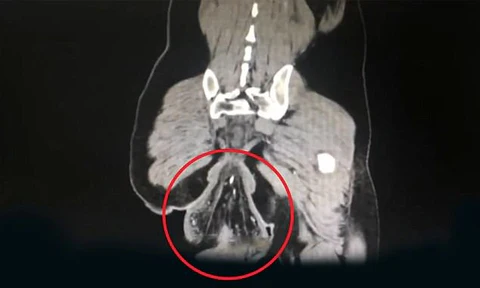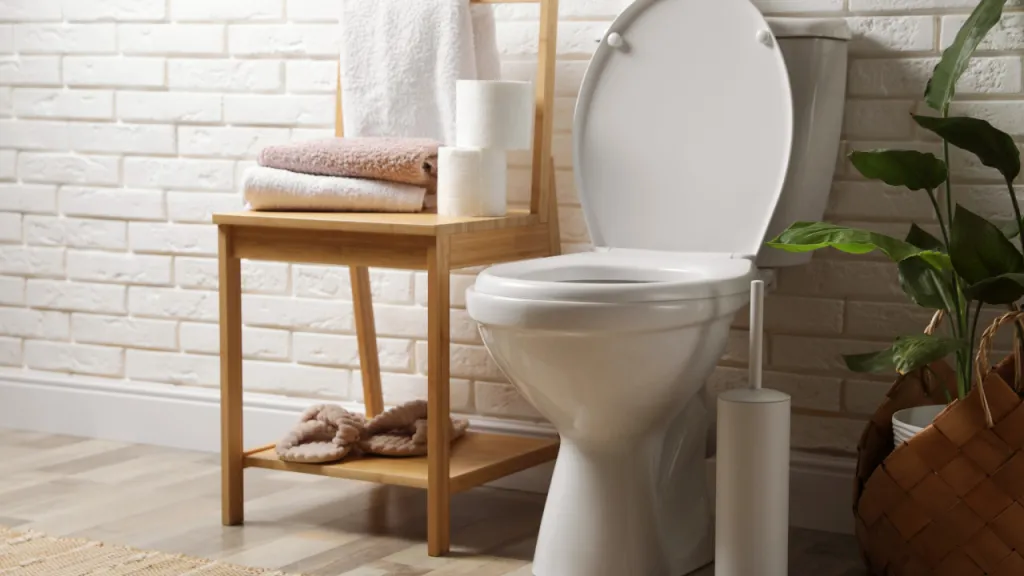People often bring their phones with them when they go to the bathroom. A quick three-minute trip there can turn into a lot of scrolling, reading, and posting.
Experts warn that being on the toilet for prolonged periods can negatively affect one’s health.
According to Lai Xue, a colorectal surgeon in Dallas, excessive use of the toilet can lead to various health conditions, such as weakened pelvic muscles and hemorrhoids.
He said that when he sees a patient, the first thing he or she must do is reduce the amount of time they spend on the toilet.

When it comes to overdoing it when it comes to toilet time, here are some of the issues that can arise. According to Farah Monzur, a professor of medicine, people should spend about five to ten minutes in the toilet.
If you’re going to use the toilet for a long time, it’s important to understand the physics behind it.
According to Xue, the body must exert more effort to pump blood into the heart as gravity keeps us on Earth. The elongated toilet seat also helps keep the rectum in the right position.
The lower half of the body can be pulled down by gravity, which increases the pressure in the blood circulation.
According to Xue, as a result, blood can no longer go back to where it came from. This can cause vessels and veins near the rectum and anus to become enlarged, which can lead to hemorrhoid issues.
Hemorrhoid development can be accelerated by forced straining. According to Monzur, people who use the toilet while looking at their phones tend to lose time, which can cause them to strain their muscles to get their bowel moving again.
Doctors can tell if they are experiencing this issue. “We’re seeing an increasing number of people who are spending more time in the toilet, which is very unhealthy for the anus and the pelvis floor,” said Xue.
Monzur also noted that prolonged toilet usage can increase one’s risk of rectal dysfunction, which occurs when the rectum slips down and the anus bulges out. Pelvic floor muscles are one of the muscles that are weak due to prolonged toilet sitting.
According to Xue, the pelvic floor muscles are responsible for moving the bowel and ensuring that it flows smoothly. Prolonged sitting can strain these muscles due to the gravitational force exerted on the floor. Gastroenterologist Lance Uradomo of City of Hope Orange County, advised that people avoid using the bathroom while looking at their phones and magazines.
Monzur advised people to avoid thinking that they can use the toilet for a long time. Instead, try to occupy yourself by bringing something to keep your mind focused. For those who have difficulty relieving themselves, Xue said that they should stop using the toilet after about 10 minutes.
For those who have difficulty moving their bowel, try to walk around a bit. Doing so can stimulate the gut muscles to move the bowel. To avoid straining, eat high-fiber food such as beans and oats and get hydrated. The U.S. National Academy of Medicine suggests consuming around 2.7 to 3.7 liters of water a day.
The USDA also recommends 14 grams of fiber for every 1,000 calories of food. According to Xue, water and fiber can help soften the stool, which makes it easier to pass. Long periods in the bathroom and colon cancer are also possible scenarios.
Persistent discomfort or difficulty passing stool may be a symptom of a gastrointestinal disorder, such as irritable Bowel Syndrome or Crohn’s disease, and it could be a sign of colon cancer. According to Uradomo, if the growth of colon tissue reaches a size that prevents stool from moving, it can lead to bleeding and constipation.
According to the American Cancer Society, the number of people under 55 who are diagnosed with colorectal cancer has increased significantly since the 1990s. In addition, the organization noted that there has been a rise in the number of rectal cancer cases. Uradomo said that during his career, he has seen a lot of young individuals talking about the symptoms of constipation and hemorrhoids. These individuals eventually got diagnosed with rectal cancer.
Monzur said that if you have been experiencing these symptoms for several weeks, it’s important to consult a doctor. The severity of the issue could determine if you require a visit to a colorectal surgeon or a gastroenterologist.

